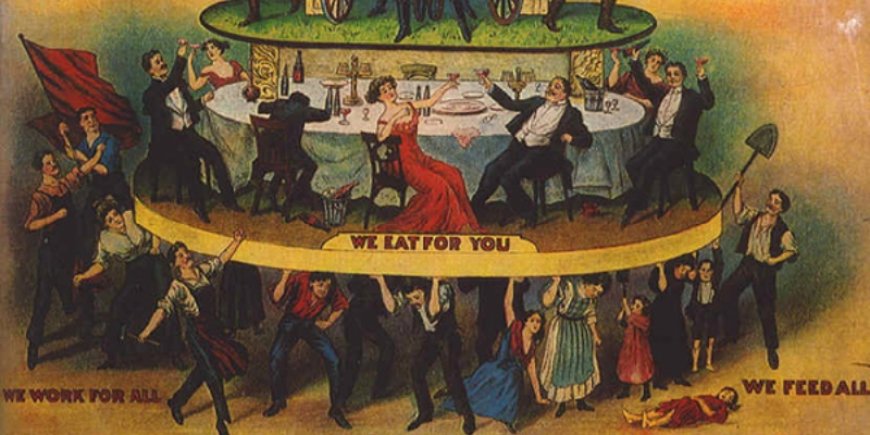Europe, general strikes against the cost of living, scenes of class struggle

The social struggles[i] that shook Western Europe for a few weeks seem to have stopped-but not ceased. The dynamics of the insubordinations are difficult to predict but their return rather than their disappearance seems predictable and probably sooner than the media and official politics imagine. Because the reasons that inspire them are stronger than their own resilience and that is what matters. The struggles that have swept through Germany, France and England tell of a continent that is not pacified. This is not so much in terms of the willingness to practice class conflict, but because of the refusal to consider the desperate conditions in which the social state of the entire continent finds itself. Primarily because of the ultraliberal primacy, which worsens both people's lives and the very public accounts that they claim to want to save precisely at the cost of the sacrifices imposed on social policies. You don't save accounts and, above all, you don't save people.
In Britain[ii], where the Brexit backlash in terms of trade has been heavy and the end of Russian investment has left its mark, the struggle is of a world of subordinate labor that is rediscovering its insubordination against the ultimate breakup of the public system, particularly the National Health Service, once the pride of her majesty's subjects and now in a pitiful condition. Which has largely contributed to reducing England to a country for billionaires above and vassals below.
In Germany[iii] the decisive shock came from an inflation that eroded by more than 10 percent the purchasing power of wages. A contraction brought about by the sanctions imposed on Russia, which cut off the supply of hydrocarbons that had been crucial to the development of German industry and had guaranteed an important role for all of Central Europe, allowing Berlin an extraordinary trade surplus in resale to third countries. In practice, net of the purchase, management and resale operation, Germany was paying a pittance for its energy bill: the German locomotive, in short, was running fast, but on Russian coal. The new German positioning in the NATO-Russia conflict being fought in Ukraine proposes a reading of Berlin's role as now succubus to the United States, which speculatively reduces Germany's specific political and commercial weight.
The most important game is being played in France[iv], as the fight over pensions targets the economic system that wants them later and later, less and less profitable and increasingly private. The millions of French people who took to the streets against the reform that Macron has imposed are questioning one of the fundamentals of liberalism and its social and existential model: the very idea of how we should spend our lives, the value of our time, the weight of work in the whole of social reproduction. There is a common thread in these struggles in the different European countries and it is represented more by their claims than by an organizational organicity: it is the refusal to consider the gradual exit of public investment in favor of private speculation in the areas of personal services and the opposition to the abandonment of industrial policies. Politically, it is the opposition to the transformation of Europe into a dependency of the U.S., where poverty increases disproportionately and subsidies and flexibility are denied on the argument that public accounts do not allow it, but then billions and billions of Euros are found to support U.S. interests in Ukraine, either indirectly through sanctions against Moscow or directly with military funds to Kiev.
The very support for the Kiev Nazis puts the historical question in a different light: does politics determine budgets or does the condition of budgets decide policy choices? Because if in the face of a growing social malaise that is already beyond the guard limits one responds with the second hypothesis, it is difficult to determine the reverse when it suits the international establishment linked to the United States. In a general crisis of Europe's role, doctrines of curbing social rights in individual countries find further impetus precisely in the face of reduced continental support. As a result, rules are tightened, spaces are drastically reduced and the idea of inclusive economic growth is permanently shelved. This is why workers in individual countries take to the streets in struggle, because they see the already so meager margins of universal protections and rights left standing after the ultraliberal hangover threatened.
by Pazooki













































